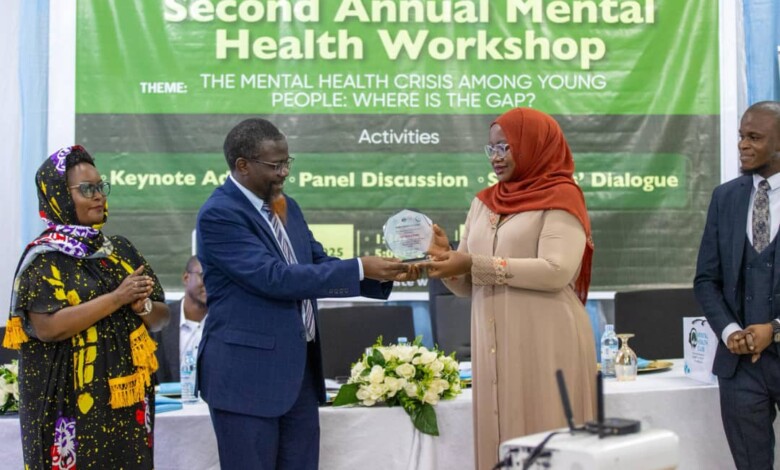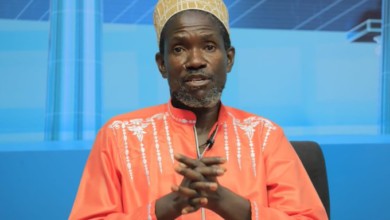Kampala grapples with mental health crisis

By Sarah Nalule
Amid a severe and escalating mental health crisis in Kampala, marked by over 90,000 reported cases and a troubling rise in student suicides, the Kampala Capital City Authority (KCCA) and the Islamic University in Uganda (IUIU) Kampala Campus have launched a national campaign for mental health awareness and psychosocial support.
The urgency of this partnership is premised on new data from KCCA, which recorded 90,530 mental health cases between July 2024 and June 2025—a 12.2 percent increase from the previous year.
This alarming figure is an indicator of a hidden epidemic, further revealed by research showing 15 documented suicides among school-going children in the 2023/2024 financial year, a crisis experts link to post-COVID trauma, academic pressure, and social neglect.
Speaking during the World Mental Health Day commemoration at IUIU, Hajati Sharifah Buzeki, the KCCA Executive Director, declared that mental health can no longer be ignored.
“We are expanding our focus to integrate mental health services at the primary healthcare level and within schools,” Buzeki added. “As KCCA, we interact with millions of people every day—so taking mental health seriously is not optional, it is essential.”
The most reported conditions included epilepsy (29%), bipolar disorder (19%), schizophrenia (14%), anxiety (6.6%), substance and alcohol use disorders (6.3%), and depression (5.3%).
Universities take the lead in healing minds
Dr. Twaha Kasule, the Academic Registrar of IUIU Kampala Campus, said the university is proud to host the annual mental health workshop for the second year running, describing it as a milestone in promoting awareness among students and the wider community.
“The road to this initiative is still young, but we are making progress,” Kasule said. “Our students of health sciences rotate through KCCA facilities, and this collaboration has created a platform to spread awareness about the dangers of drug use and substance abuse.”
He praised KCCA for maintaining consistent engagement in mental health advocacy, noting that partnerships like this help sustain the conversation across changing leaderships.
“Sometimes students begin great initiatives, but when leadership changes, the focus fades,” Kasule observed. “KCCA has kept the candle burning. We want them to continue being ambassadors of mental health—especially in communities where such information is scarce.”
The university has also strengthened its student counselling services, ensuring that learners struggling with emotional distress can access professional help.
“We have a university counsellor who is always available to help students,” Kasule said. “Through awareness, education, and counselling, we aim to nurture a culture of empathy and resilience.”
Suicide and addiction: The hidden crisis
According to Dr. Luwedde, a mental health researcher, the growing suicide rates among learners reveal a deeper crisis fuelled by post-Covid trauma, academic pressure, and social neglect.
In the 2023/2024 financial year, 15 suicide cases among school-going children were documented, with 60 percent involving males and 40 percent females. More than half occurred in secondary schools, while the rest were in primary and tertiary institutions.
“Uganda’s long school closure during Covid-19 left many students emotionally broken,” Dr. Luwedde said. “We are seeing a generation under pressure—grappling with lost time, competition, and lack of emotional support.”
She noted that substance abuse, gambling, and internet addiction have become silent triggers, particularly in elite schools where students have access to narcotics.
“This is just the tip of the iceberg,” she warned. “The absence of coordinated mental health programs and weak community support makes recovery much harder.”
A shared commitment to wellness
Both IUIU and KCCA pledged to continue their partnership in promoting mental health education, awareness, and access to psychosocial support.
“Mental health must be everyone’s responsibility,” Buzeki emphasized. “When the environment is clean, safe, and empowering, mental well-being follows.”
Dr. Kasule echoed the call for collaboration between institutions, parents, and policymakers.
“Together, we can turn awareness into action,” he said. “Let us make mental wellness part of our families, schools, and communities.”
KCCA announced plans to expand community wellness programs, integrate counselling in city health centers, and roll out school-based mental health initiatives under the ‘Healthy Mind, Healthy City’ campaign.
“A mentally healthy city is a stronger city,” Buzeki concluded. “And with partners like IUIU, we are building that future one life at a time.”






